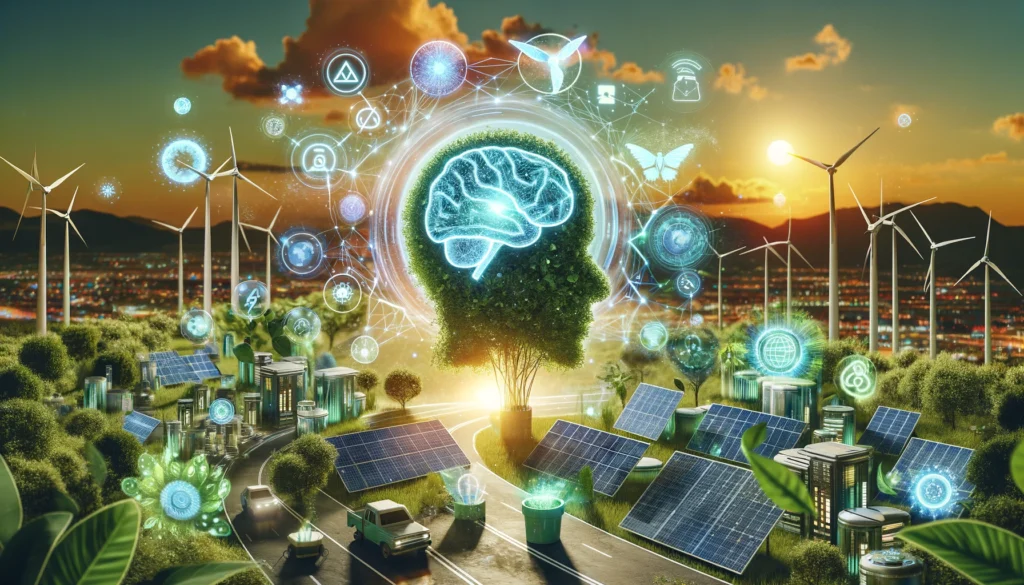Physical Address
304 North Cardinal St.
Dorchester Center, MA 02124
Network
Physical Address
304 North Cardinal St.
Dorchester Center, MA 02124
Network

In order to fight climate change and promote sustainability, Artificial Intelligence (AI) is being used as a catalyst for change within the energy sector. A shrewd investor in clean-energy technologies, Thane Ritchie acknowledges that AI has the power to make energy systems more efficient, reliable and green. “AI is central to contemporary energy solutions, helping us utilize renewable resources better and reduce our environmental impact”, Ritchie asserts.
| Application | Description | Impact |
| Smart Grid Management | AI algorithms that manage the flow of energy in the grid based on real-time data. | Enhances the reliability and efficiency of energy distribution. |
| Predictive Maintenance | Uses AI to predict when equipment needs maintenance before failures occur. | Reduces downtime and extends the lifespan of energy infrastructure. |
| Energy Demand Forecasting | AI models that predict energy demand patterns to optimize energy production. | Improves energy efficiency and reduces waste. |
| Renewable Energy Optimization | AI optimizes the operation of wind and solar farms by analyzing weather data. | Maximizes output from renewable energy sources. |
AI is transforming how we produce, distribute, and consume energy through energy management optimization. It plays a significant role in ensuring sustainable development by improving efficiency in the use of renewable sources.
The efficiency of solar panels can be increased by using AI. Algorithms based on artificial intelligence are able to adjust panel angles throughout the day so that they catch maximum sunlight after analyzing data from weather stations alongside solar arrays thereby resulting into a significant increase in power generated.
Application: A company that deals with solar powers uses artificial intelligence to reposition its panels dynamically which leads to 20% higher capture compared with fixed ones.
In wind farms AI algorithms can predict wind patterns as well as optimizing turbine speeds which lead to maximum generation of electricity. This does not only increase production but also prevents overloads during strong winds.
Application: In real-time meteorological data analysis for pitch optimization combined with yawing control at turbines located within wind mills henceforth enhancing efficiency while reducing mechanical stresses caused by misalignment or excessive vibration due uneven loading across different points along an axis where such forces act upon each other creating torques about said axes causing them rotate around their centers mass until equilibrium position reached between input torque output torque produced rotational motion around this centre mass acts an opposing force against another applied externally known simply as moment resistance equal zero when these two moments become balanced relative positions remain stationary until any one or both vary significantly then change again until all forces are balanced at rest.
AI is crucial in smart grid technology which helps manage energy flows, balance renewable supply fluctuations with demand response capabilities among other things. Smart grids incorporated with AI can re-route power automatically so as to even out loads across the grid during peak hours thus preventing blackouts while promoting efficient utilization of electricity.
Energy infrastructure such as pipelines, grids and turbines can benefit greatly in terms cost savings and efficiency gains if predictive maintenance using AI is employed. Artificial intelligence enables early detection of potential failures by identifying patterns that indicate a need for repairs before breakdowns occur which could be expensive to fix.
Thane Ritchie invests based on his understanding that AI should offer sustainable energy solutions alongside high returns on capital. He therefore backs startups involved in developing AI applications within the energy industry with the aim of accelerating worldwide adoption towards cleaner sources of power generation.
Even though there are many advantages linked with artificial intelligence when it comes to the energy sector, some challenges still exist; these include but not limited to cyber security threats as well substantial investments required in digital infrastructures. Furthermore, introducing AI ought to be done cautiously since it might result into job displacement without adequate provisions being put place for retraining workers who may lose their current jobs due automation brought about by this technology.
With its ability to adapt rapidly changing environments while making them efficient or more ecologically friendly, Artificial Intelligence has transformed various industries most notably being those related to power supply systems. For investors like Thane Ritchie who care about both economic viability as well environmental sustainability, investing in artificial intelligence applied within the field of energy presents vast opportunities for growth. As this field keeps advancing there will arise new ways through which it can completely change how we produce and use electricity hence offering bright prospects those ready invest into cleaner future.